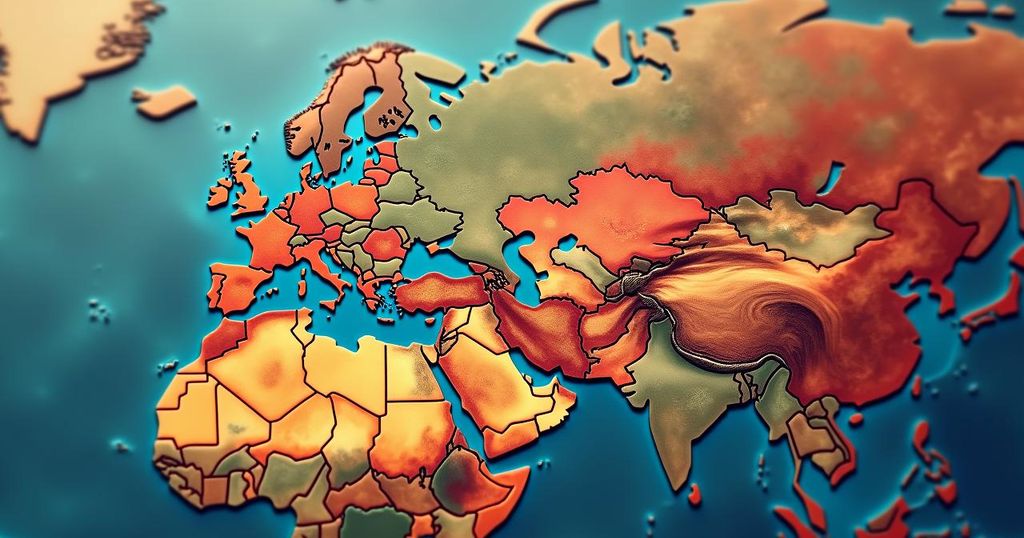Impact of Middle East Violence on US Electoral Dynamics

The escalating violence in the Middle East, particularly involving Israel’s military actions, threatens the electoral prospects of Vice President Kamala Harris by alienating Arab American voters. Historically a key Democratic constituency, their dissatisfaction with the Biden administration’s support for Israel could be decisive in swing states such as Michigan, where foreign policy has now become a critical concern for many voters as election day approaches.
The ongoing escalation of violence in the Middle East, specifically the conflict involving Israel’s military operations in Gaza and Lebanon, is poised to significantly impact the upcoming U.S. presidential election. Analysts assert that Vice President Kamala Harris, as the Democratic candidate, may face challenges due to rising discontent among Arab American voters in pivotal states such as Michigan. Once a solidly Democratic constituency, support from Arab Americans has dwindled, primarily in response to the Biden administration’s unwavering backing of Israel amidst escalating conflict, which has resulted in substantial civilian casualties in the region. While foreign policy usually does not dominate voter priorities, over 80 percent of Arab Americans indicate that it will influence their electoral decisions this November. The Biden administration’s support, which includes substantial military assistance to Israel, has led to a significant shift in party loyalty among Arab voters. Recent polls demonstrate a near-even split between support for Harris and her Republican rival, Donald Trump, with many voters expressing a desire to penalize the administration for its stance on the ongoing violence. Though Biden had garnered 59 percent of the Arab vote in 2020, subsequent developments have drastically reduced that figure. As election day approaches, these tensions are compounded by the volatility of the geopolitical environment, including potential ramifications from Iranian missile responses and fears of a broader conflict in the region that could further embroil U.S. foreign policy. With concerns heightening among American voters regarding the U.S.’s role in the Middle East, Harris’s campaign may find it increasingly difficult to maintain the support necessary to overcome a competitive electoral landscape.
The article scrutinizes the potential ramifications of escalating violence in the Middle East on the forthcoming presidential election in the United States. It highlights the discontent among Arab American voters towards the Biden administration’s continued support for Israel, particularly in light of the ongoing conflict in Gaza and Lebanon. This shift in voter sentiment is critical, given the historical alignment of Arab Americans with the Democratic Party, which is now facing challenges in retaining that loyalty. As the political landscape evolves, the article emphasizes the increasing importance of foreign policy, particularly regarding Middle Eastern conflicts, in influencing voter decisions within key swing states.
In summary, the heightened violence in the Middle East is likely to adversely affect the electoral prospects of Vice President Kamala Harris, particularly among Arab American voters who feel alienated by the Biden administration’s foreign policy decisions. As the elections draw closer, the impact of these sentiments may be pivotal in determining the outcome in crucial battleground states. With diverging opinions within the Democratic base and the electorate’s growing concerns over U.S. involvement abroad, the campaign faces a complex challenge that may reshape voter loyalty and turnout in the upcoming election.
Original Source: www.aljazeera.com








